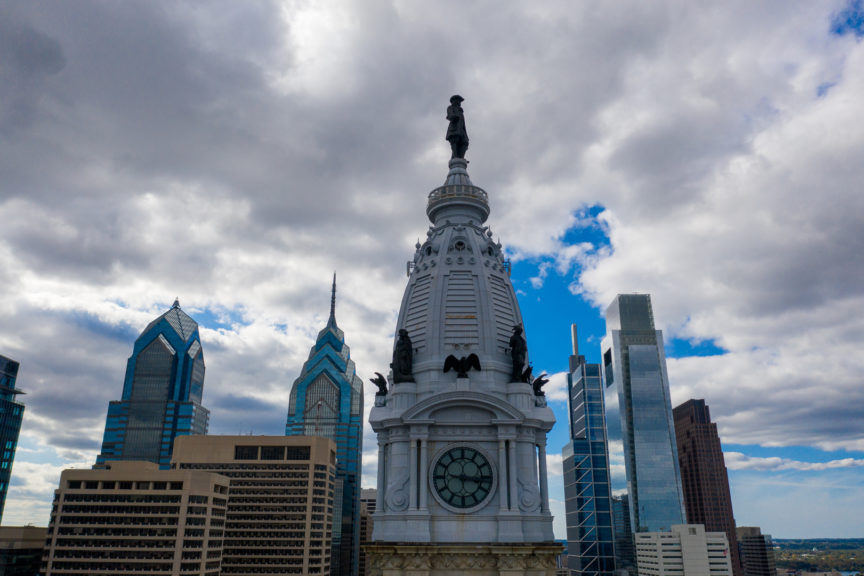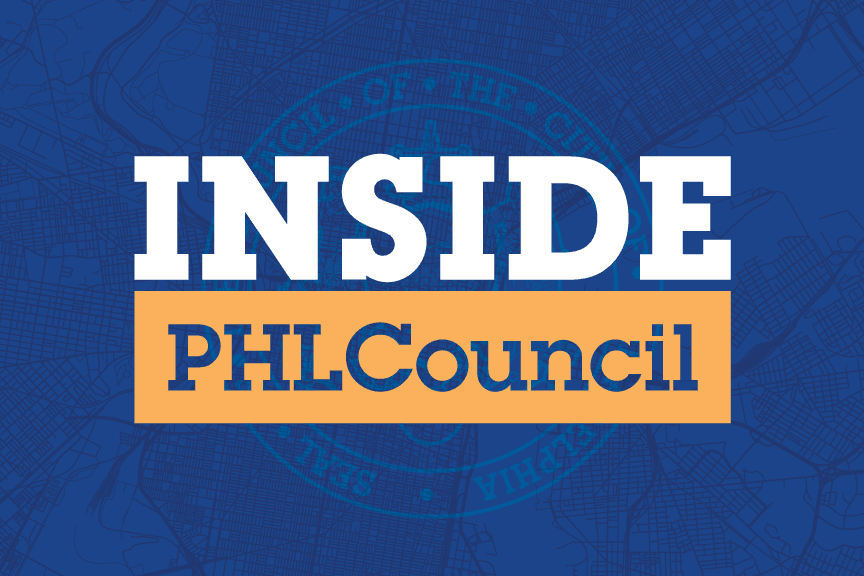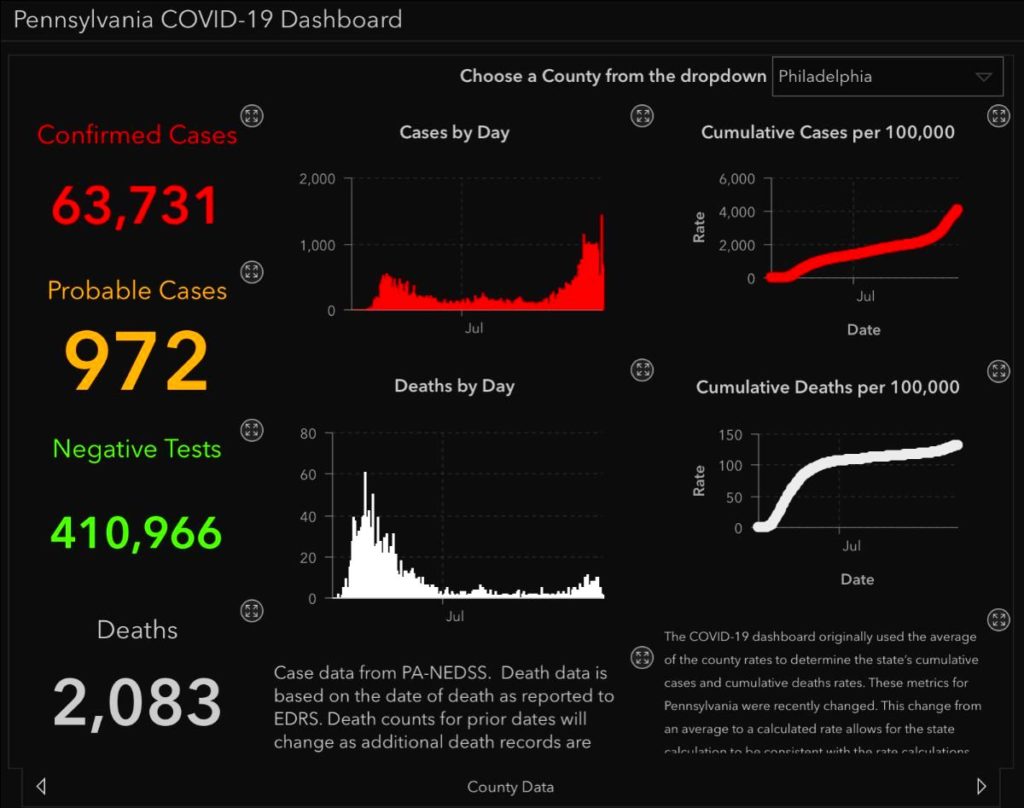 CITY COUNCIL ADVANCES BILLS TO FUND $400 MILLION PROGRAM INVESTING IN AFFORDABLE HOUSING, SMALL BUSINESS SUPPORT AND NEIGHBORHOOD PRESERVATION
CITY COUNCIL ADVANCES BILLS TO FUND $400 MILLION PROGRAM INVESTING IN AFFORDABLE HOUSING, SMALL BUSINESS SUPPORT AND NEIGHBORHOOD PRESERVATION
A City Council committee this week voted to advance a series of tax bills intended to generate $400 million in bond revenue to fund massive citywide investment in affordable housing, home repair, poverty reduction and job creation.
Council’s Committee of the Whole voted favorably to advance a 1 percent Development Impact Tax on residential construction, along with legislation that reduces the real estate tax abatement for commercial construction by 10 percent.
Revenues from the Development Impact Tax and commercial abatement reduction will be used to fund the Neighborhood Preservation Initiative, a $400 million program to address disparities magnified by the COVID-19 pandemic, including the need for more affordable housing, repairs to residents’ existing homes, support for first-time homebuyers, neighborhood business corridor revitalization, and the creation of a more inclusive workforce and family-sustaining jobs across the city.
“In June, City Council passed a New Normal Budget Act — a first step towards addressing the ills and racial disparities magnified by the COVID-19 pandemic,” said Council President Darrell L. Clarke (5th District). “Our action in committee this week builds on the New Normal Act and the recommendations in Council’s Poverty Action Plan which we released in March. There is no time to wait. Poverty is growing. These needs are urgent. We need to act now to create a more equitable future for every Philadelphian, and everyone has to pay their fair share.”
The Committee of the Whole vote on Tuesday night sent to the full Council a 1 percent Development Impact tax on residential construction and legislation reducing the tax abatement for commercial construction from 100 percent down to 90 percent.
The Development Impact tax on residential construction will yield an estimated $9 million to $11.7 million in revenue per year, according to projections by Council’s budget and technical staff. The 10 percent reduction in the commercial real estate abatement will generate an estimated $83 million in revenues for city services and schools over the next decade. The revenue from the two reforms will help pay the debt service for the planned $400 million bond issue.
What the Neighborhood Preservation Initiative Will Do
- Build thousands of new affordable housing units
- Keep thousands of homeowners in their homes through home repair grants
- Create thousands of construction and related family-sustaining jobs
- More inclusive construction workforce through job training and apprenticeships
- Aggressively expand contract opportunities for minority-owned businesses
- Preserve thousands of existing affordable rental units
- Homeownership opportunities for thousands of people through Philly First Home
- Help disabled residents stay in their homes through adaptive modification grants
- Strengthen small businesses by revitalizing neighborhood commercial corridors
“We can’t sit by idly and wait for someone to come to our rescue; we must be proactive,” said Council’s Majority Leader, Cherelle L. Parker (9th District), who introduced the legislation on Clarke’s behalf. “This legislation will generate close to a half billion dollars that will impact the lives of our most vulnerable residents who have been hurt most directly by the coronavirus. It will help those in poverty, prevent those on the margins from falling further behind, and assist small businesses – which need help the most right now.”
An earlier version of the Development Impact tax, introduced in Council in 2018, encountered resistance from the development community, and it was withdrawn. To garner more support this time, Council is also moving forward with legislation that will delay by 12 months the planned rollback in the residential portion of the real estate tax abatement.
That legislation, offered by Councilmember Bobby Henon (6th District), will delay the start date for the rollback of the residential abatement and set it to begin in January 2022. The rollback of the residential abatement itself will remain in place; it is only the start date that will change. The residential abatement will reduce in 10 percent annual increments over 10 consecutive years for all new dwellings.
A group of non-profit organizations supporting more affordable housing testified in support of the full package, led by Beth McConnell of the Phila. Association of Community Development Corporations, who said, “These bills will help the city attack inequality – particularly among people of color – and provide more affordable housing.” Others noted that more affordable housing and improving existing homes could act as a deterrent to the spread of COVID-19.
The city’s construction and development communities testified in opposition to the Development Impact Tax and the reduction in the commercial abatement. Their representatives all stated broadly that they supported the concepts of “equitable growth” – yet all, with one exception, testified against the tax and the commercial abatement reduction designed to help pay for Council’s Neighborhood Preservation Initiative.
That led Council President Clarke to address one of those business witnesses, from the Chamber of Commerce for Greater Philadelphia. Clarke recited multiple tax breaks received by the development community from the Trump administration, including a $30 billion windfall for new pass-through and real estate dividend deductions, a $16 billion windfall for real estate exemption from limitations on interest deductions, and other incentives.
Clarke highlighted the city’s existing real estate tax abatement program, in which the city abated an average $150 million in real estate taxes each year to the City and School District over the last three years.
One business group that testified in favor of the Development Impact Tax and the Neighborhood Preservation Initiative was the Building Industry Association. “As we did in 2018, the BIA has made the hard decision to support and endorse a Construction Impact Tax,” testified Mo Rushdy, BIA’s treasurer. “We are acutely aware of how Philadelphia has turned into an extreme housing example of the “haves and the have nots”, and that more must be done immediately to ensure our City has opportunities for all to grow and flourish. The BIA believes it is time to collaboratively craft policies that help all residents in this City share in its prosperity.”
In committee Tuesday, the vote for the commercial abatement reduction was unanimous, 17-0. The vote on the 1 percent Development Impact Tax passed, 13-4 (Councilmembers Brian O’Neill, David Oh, Derek Green and Allan Domb opposing). The vote on delaying the residential abatement rollback by 12 months was closer, but passed 10-7 (Councilmembers Helen Gym, Jamie Gauthier, Kendra Brooks, Isaiah Thomas, Katherine Gilmore Richardson, Domb and Green opposing.) The full Council approved the three bills on first reading yesterday, with final passage scheduled for Dec. 10th.
MAYOR KENNEY SIGNS LEGISLATION APPROPRIATING $10 MILLION FOR POVERTY ACTION FUND
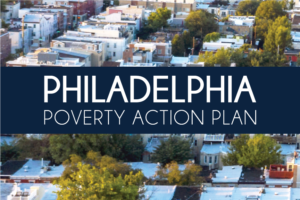 Mayor Kenney yesterday signed and approved legislation appropriating $10 Million to create the Poverty Action Fund, a joint public-private partnership between the city, the business and non-profit communities to devise action steps to help lift 100,000 people out of poverty over the next four years.
Mayor Kenney yesterday signed and approved legislation appropriating $10 Million to create the Poverty Action Fund, a joint public-private partnership between the city, the business and non-profit communities to devise action steps to help lift 100,000 people out of poverty over the next four years.
“City Council is committed to public-private partnerships that measurably reduce poverty for thousands of Philadelphians,” said Councilmember Maria Quiñones Sánchez (7th District), co-chair of Council’s Special Committee on Poverty Reduction and Prevention. “In the New Normal, all of our neighbors deserve access to quality affordable housing and thriving commercial corridors built upon family-sustaining jobs.”
Council is working closely with the United Way for Southeastern Pennsylvania and New Jersey on the Poverty Action Fund, and next steps include the creation of the non-profit entity to govern the fund and to appoint its board of directors.
COUNCIL VOTES TO BAN TOXIC HERBICIDES’ USE ON CITY PUBLIC GROUNDS, PARKS, REC CENTERS, TRAILS AND PLAYGROUNDS
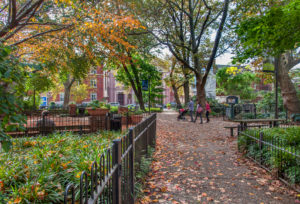 An ordinance proposed by Councilmember Cindy Bass (8th District) that would prohibit the use of toxic herbicides on all city-owned or used public grounds, including city parks, trails, recreation centers, playgrounds and golf courses, passed Council unanimously yesterday, after a deep list of members of the public testified in support of the legislation.
An ordinance proposed by Councilmember Cindy Bass (8th District) that would prohibit the use of toxic herbicides on all city-owned or used public grounds, including city parks, trails, recreation centers, playgrounds and golf courses, passed Council unanimously yesterday, after a deep list of members of the public testified in support of the legislation.
Veterinarians, neighborhood block captains, mothers, environmental activists for clean water and many others lined up virtually, one after another, to support the bill and urge the city to end its use of herbicides in public grounds to curb or control vegetation.
“Philadelphians clearly want this (herbicide use) reduced, and they want to improve the health of our land,” said Bass, who chairs Council’s Committees on Parks and Recreation and also on Public Health and Human Services. She noted the final version of the ordinance includes a waiver process by which herbicides may be approved for use if no other non-toxic method is available in an emergency to curb an invasive plant species.
COUNCILMEMBER GILMORE RICHARDSON’S RESOLUTION PRIORITIZES CLIMATE ACTION, ENVIRONMENTAL JUSTICE IN COVID-19 RECOVERY
Councilmember Katherine Gilmore Richardson’s resolution declaring Council’s intent to prioritize climate action and environmental justice in the ongoing COVID-19 recovery process passed Council today. The “green recovery” resolution was co-sponsored by 11 members, including the entire Committee on the Environment.
“Today, City Council made a bold statement that climate action can no longer wait,” said Councilmember Gilmore Richardson. “Residents have called for systemic change and ensuring that our city is resilient and taking advantage of the opportunities presented by a green economy is an important part of tackling the multiple ongoing crises in our city, including systemic racism and poverty. Our COVID-19 recovery and future budget processes are crucial to creating an equitable, green, affordable, safe City. Thank you to the more than 60 advocates and community organizations on my Civilian Environmental Advisory Committee for their hard work and continued engagement. Thank you to my colleagues for your strong support of this resolution.”
SEEN ON SOCIAL MEDIA…
Wearing a mask shows that you care about yourself and others. Let’s all work together to help stop the spread of COVID-19 in Philly! We’ve done it before and we can do it again! 💪 #MaskUpPHL pic.twitter.com/4ZsbkddhCl
— Philadelphia Public Health (@PHLPublicHealth) December 2, 2020
IN OTHER NEWS…
Councilmember Domb Resolution: Hold hearings to examine impact of COVID-19 Restrictions on City Restaurants and other Businesses. Domb’s resolution will be heard in Council’s Fiscal Stability and Intergovernmental Cooperation, and will look not only at the city’s current restrictions – imposed last month as COVID-19 infections, deaths and hospitalizations rose, but also as to how the latest set of prohibitions impact citizens’ safety and the city’s Five-Year Financial Plan.
Councilmember Parker Resolution Calls for “Shop Black Business Fridays” Throughout December. Parker, a champion of neighborhood-based small businesses and retail corridors throughout her Northwest Philadelphia district as well as citywide, noted in her resolution that COVID-19 has hit black-owned businesses hard nationally, with estimates that at least 40 percent of these businesses have closed – twice the rate of other businesses. It notes that Visit Philadelphia, the city’s tourism marketing agency, has kicked off the holiday season with dedicated marketing efforts to support the economic recovery and growth of local black- and brown-owned businesses.
Councilmember Johnson Resolution Calls for Hearings into COVID-19’s Spread in City Prisons. Councilmember Kenyatta Johnson (2nd District) said the issue of COVID-19’s slow, steady spread in correctional facilities was a statewide, not just a citywide issue, and he called for hearings to examine it and seek better prevention measures.
Councilmember Green Details Wide Array of Council-Led Measures to Aid Small Businesses Struggling Through Pandemic. Green, a consistent supporter of city-based small businesses, detailed a long list of actions that Council has led on during the pandemic to support them, from working with the Kenney administration to urge that more CARES Act funds be directed to help small businesses (it’s now over $38 million in aid), to hearings held in Council examining how businesses can safely re-open, to a recent decision by the administration to relieve certain businesses of their Use & Occupancy tax obligations (while their use of their establishments are curtailed by the health crisis).
The Councilmember spoke admiringly of an entrepreneur, a Central High grad, Tina Dixon-Spencer, who recently opened a new business, Buddha Babe, in Northwest Philadelphia, despite the uncertain economic times caused by the pandemic.
OTHER SIGHTS AND SOUNDS FROM THE COUNCIL WEEK
Committee on Streets and Services, held 11-30-3030
Committee on Finance, held 11-30-2020
Committee on Public Property and Public Works, held 11-30-2020
Committee on Rules, held 12-1-2020
Committee of the Whole, held 12-1-2020
Committee on Appropriations, held 12-2-2020
Committee on Fiscal Stability and Intergovernmental Cooperation, held 12-2-2020
Stated Meeting of Philadelphia City Council, held 12-3-2020
Inside PHLCouncil Podcast, Ep 16 – General Election Recap, released November 23, 2020.
NEXT WEEK IN PHILADELPHIA CITY COUNCIL
Monday, December 7, 2020
Committee on Legislative Oversight 2:30pm
Tuesday, December 8, 2020
Joint Committee on Public Property & Public Works; Labor & Civil Service 1:00pm
Wednesday, December 9, 2020
Joint Committee on Public Health & Human Services, Public Safety 9:30am
Committee on Commerce and Economic Development 1:00pm
Thursday, December 10, 2020
Stated Meeting of Philadelphia City Council 10:00am
Committee on Public Health and Human Services 1:00pm
PHILADELPHIA FACTS AND FIGURES
The next Stated Meeting of City Council is scheduled to take place on Thursday, December 10, 2020 at 10 am. The Meeting will be held remotely due to the ongoing pandemic, and will air on Xfinity Ch. 64, Fios Ch. 40 and stream at www.PHLCouncil.com/watch.

